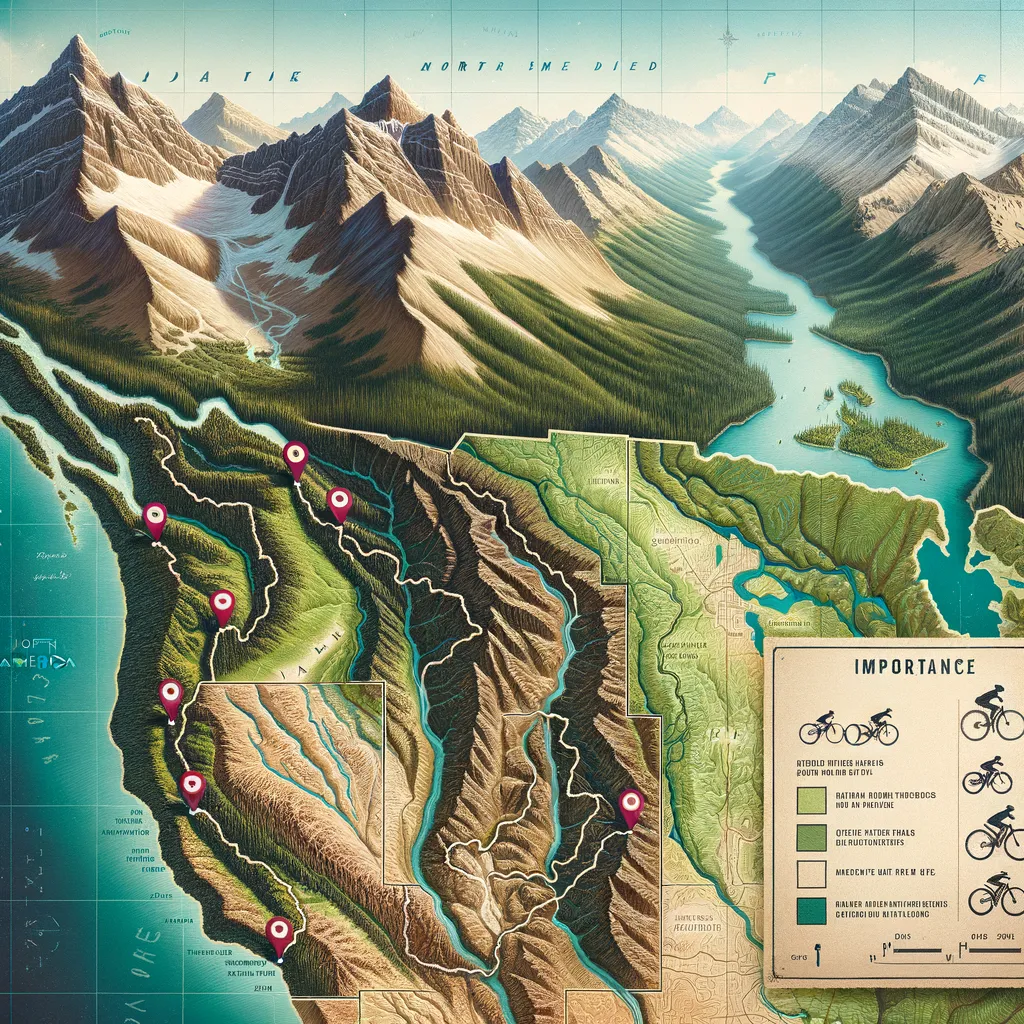The Joyful Journey: Exploring the Benefits of Outdoor Education for Children
Welcome, dear parents, to The Joyful Journey: Exploring the Benefits of Outdoor Education for Children! In this enlightening guide, we’re about to embark on a fascinating adventure into nature’s classroom. The world outside our doors is not just a playground, but a vast, interactive learning environment full of life’s most valuable lessons. Let’s dive in and discover together how outdoor education can shape our children’s futures, fostering their growth in unparalleled ways.
Why Choose the Great Outdoors?
Outdoor education transcends the conventional classroom walls, offering children a breath of fresh air along with a the wealth of learning opportunities. It’s more than just a break from the traditional learning environment; it’s a pathway to holistic development. Research has consistently shown the myriad of benefits that nature-based learning provides. So, why should we consider the great outdoors as part of our children’s education? Let’s explore.
Nurtures Physical Health
First and foremost, the great outdoors encourages active play, which is crucial for the physical development of children. Climbing trees, running through fields, and navigating the natural world develop their motor skills, improve cardiovascular health, and boost overall physical stamina. Unlike the static environment of indoor classrooms, the dynamic nature of outdoor settings challenges children in healthy, fun, and engaging ways.
Enhances Emotional and Mental Well-being
It’s no secret that being in nature can significantly reduce stress and anxiety. For children, outdoor activities offer an escape from the pressures of daily life, serving as a natural stress reliever. The calming effect of green spaces fosters emotional resilience and provides a sanctuary for creativity, imagination, and meditation. Moreover, achievements in outdoor tasks build self-confidence and a sense of accomplishment, contributing to better mental health.
Supports Cognitive Development
Outdoor education is not only about physical activities; it’s rich with cognitive challenges too. Interacting with the natural environment enhances critical thinking, problem-solving, and decision-making skills. The unpredictable nature of outdoor settings makes every outing a unique learning experience, urging children to think on their feet. Additionally, outdoor lessons can complement and reinforce classroom learning, making abstract concepts more tangible.
Encourages Social Skills
Learning in the great outdoors often requires teamwork and communication. Children learn to collaborate, share responsibilities, and support each other to overcome challenges. This solidarity fosters strong friendships and teaches valuable social skills like empathy, negotiation, and leadership. Outdoor educational activities allow children to interact with peers in a more relaxed and inclusive setting, which can be particularly beneficial for those who find socializing in conventional environments challenging.
Instills a Love for Nature
Perhaps one of the most profound benefits of outdoor education is the lasting relationship it builds between children and the environment. Experiencing the beauty and complexity of nature first-hand cultivates a deep appreciation and respect for our planet. This connection encourages environmental stewardship, inspiring the next generation to protect and preserve our natural world. By learning the importance of sustainability and ecological balance early on, children are empowered to make informed decisions that favor environmental health.
In the journey through outdoor education, we find a holistic approach to learning that touches every aspect of a child’s development. From improving physical health to nurturing a keen mind and a compassionate heart, the benefits of embracing the natural world are boundless. As we delve deeper into the joys and wonders of outdoor learning, we invite you and your children to join us in this exploration. Together, let’s unlock the endless possibilities that nature offers for nurturing young minds and spirits.
Stay tuned for more insights as we continue to explore the transformative power of outdoor education for children, shedding light on practical ways to integrate this invaluable learning approach into our lives.
Unlocking Nature’s Classroom: 5 Essential Insights for Embracing Outdoor Education
As we delve into the enchanting world of outdoor education, it’s essential for parents to understand the key elements that make nature’s classroom so beneficial for their children’s development. The journey into outdoor learning is not just about stepping outside; it’s about embracing a philosophy that enriches a child’s physical, mental, and emotional well-being. Here are five vital insights for parents ready to explore the transformative power of outdoor education for their children.
1. The Power of Preparation
Embarking on the outdoor education journey requires thoughtful preparation to ensure that children have a safe and enriching experience. Begin by outfitting your child with the right gear. This means weather-appropriate clothing, sturdy footwear, and perhaps even a small backpack for their water bottle and any nature finds. Knowledge of the area you’ll be exploring together, whether it’s a local park or a nature reserve, is also crucial. Understand the safety guidelines, potential hazards, and the unique features of the environment to maximize the educational potential of each visit.
2. Embracing the Unpredictable
One of the most exciting aspects of outdoor education is its inherent unpredictability. Unlike the structured environment of a classroom, nature offers surprises at every turn. This unpredictability is not something to shy away from; instead, it’s a valuable lesson in adaptability and resilience for your child. Teach them to see changes in weather, encounters with wildlife, or the discovery of an unknown plant as opportunities for learning and growth. Embracing uncertainty outdoors nurtures flexibility and problem-solving skills crucial for personal development.
3. Fostering a Risk-Taking Attitude
Outdoor education inherently involves a certain level of risk, but within that risk lies immense growth potential. Encouraging your child to climb a little higher, jump a little further, or navigate their way through a dense part of the forest can do wonders for their confidence and self-esteem. Of course, it’s vital to balance this encouragement with a keen awareness of safety and your child’s limitations. Learning to take calculated risks in a controlled environment is a valuable life skill, promoting a can-do attitude towards challenges and new experiences.
4. The Importance of Being Present
In our digital age, it’s increasingly challenging to disconnect from technology and be truly present in the moment. Outdoor education offers a precious opportunity to immerse ourselves fully in the natural world, without the constant buzz of electronic devices. Encourage your child to use their senses to explore — to listen to the rustling leaves, feel the bark of a tree, smell the earthiness of the forest, see the myriad of colors in a meadow, and maybe even taste the freshness of a mountain stream (where safe). Being present in the moment enhances mindfulness and promotes a deep connection with nature.
5. Cultivating Environmental Stewardship
One of the most profound lessons outdoor education offers is a sense of responsibility towards our planet. It’s one thing to learn about environmental protection in theory; it’s another to experience the reasons why it’s essential first-hand. Instill in your child an ethic of care for the environment by practicing leave-no-trace principles, observing wildlife respectfully, and participating in conservation efforts. These practices not only protect our natural surroundings but also teach children the importance of their role in preserving the planet for future generations.
As we embrace the full spectrum of outdoor learning, we discover that it’s more than just an education outside the classroom walls. It’s a holistic approach to development that prepares children for the complexities of the world with a clear mind, a strong body, and a compassionate heart. By preparing properly, embracing unpredictability, fostering a risk-taking attitude, being present, and cultivating environmental stewardship, we can unlock the full potential of the great outdoors for our children. Let’s step into nature’s classroom together, ready to learn and grow in ways we never imagined possible.
Disclaimer
The articles available via our website provide general information only and we strongly urge readers to exercise caution and conduct their own thorough research and fact-checking. The information presented should not be taken as absolute truth, and, to the maximum extent permitted by law, we will not be held liable for any inaccuracies or errors in the content. It is essential for individuals to independently verify and validate the information before making any decisions or taking any actions based on the articles.




